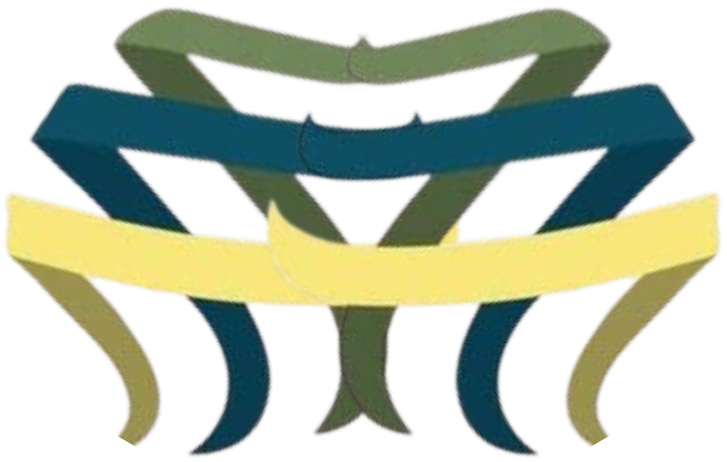Volume no :
|Issue no :
Article Type :
Author :
Mr.Sidharth SharmaPublished Date :
Publisher :
Page No: 1 - 6
Abstract : The rapid advancement of quantum computing poses a significant threat to classical cryptographic systems, particularly those based on RSA, ECC, and other public-key algorithms. With Shor’s algorithm capable of efficiently factoring large numbers and breaking current encryption standards, the transition to post-quantum cryptography (PQC) has become a global priority. This paper explores the impact of quantum computing on cryptographic security, the need for quantum-resistant cryptographic algorithms, and ongoing standardization efforts led by organizations such as NIST. We analyze various post-quantum cryptographic techniques, including lattice-based, hash-based, multivariate, and code-based cryptography, assessing their feasibility for real-world implementation. Additionally, we discuss the challenges associated with transitioning to PQC, including computational overhead, interoperability, and regulatory compliance. As the quantum era approaches, organizations must proactively adopt post-quantum cryptographic solutions to safeguard sensitive data and ensure long-term security in a quantum-capable world.
Keyword Post-quantum cryptography, quantum computing, cryptographic security, Shor’s algorithm, quantum-resistant algorithms, lattice-based cryptography, hash-based cryptography, multivariate cryptography, code-based cryptography, NIST standardization, cybersecurity, encryption, digital signatures.
Reference:
- Jasper Gnana Chandran, J., Karthick, R., Rajagopal, R., & Meenalochini, P. (2023). Dual-channel capsule generative adversarial network optimized with golden eagle optimization for pediatric bone age assessment from hand X-ray image. International Journal of Pattern Recognition and Artificial Intelligence, 37(02), 2354001.
- Karthick, R., Prabha, M., Sabapathy, S. R., Jiju, D., & Selvan, R. S. (2023, October). Inspired by social-spider behavior for microwave filter optimization, swarm optimization algorithm. In 2023 International Conference on New Frontiers in Communication, Automation, Management and Security (ICCAMS)(Vol. 1, pp. 1-4). IEEE.
- Vijayalakshmi, S., Sivaraman, P. R., Karthick, R., & Ali, A. N. (2020, September). Implementation of a new Bi-Directional Switch multilevel Inverter for the reduction of harmonics. In IOP Conference Series: Materials Science and Engineering(Vol. 937, No. 1, p. 012026). IOP Publishing.
- Kiruthiga, B., Karthick, R., Manju, I., & Kondreddi, K. (2024). Optimizing harmonic mitigation for smooth integration of renewable energy: A novel approach using atomic orbital search and feedback artificial tree control. Protection and Control of Modern Power Systems, 9(4), 160-176.
- Sulthan Alikhan, J., Miruna Joe Amali, S., & Karthick, R. (2024). Deep Siamese domain adaptation convolutional neural network-based quaternion fractional order Meixner moments fostered big data analytical method for enhancing cloud data security. Network: Computation in Neural Systems, 1-28.
- Sakthi, P., Bhavani, R., Arulselvam, D., Karthick, R., Selvakumar, S., & Sudhakar, M. (2022, September). Energy efficient cluster head selection and routing protocol for WSN. In AIP Conference Proceedings(Vol. 2518, No. 1). AIP Publishing.
- Aravindaguru, I., Arulselvam, D., Kanagavalli, N., Ramkumar, V., & Karthick, R. (2022, September). Space cloud in cubesat-Consigning expert system to space. In AIP Conference Proceedings(Vol. 2518, No. 1). AIP Publishing.
- Karthick, R., Prabaharan, A. M., & Selvaprasanth, P. (2019). A Dumb-Bell shaped damper with magnetic absorber using ferrofluids. International Journal of Recent Technology and Engineering (IJRTE), 8.
- Selvan, R. S., Wahidabanu, R. S. D., Karthick, B., Sriram, M., & Karthick, R. (2020). Development of Secure Transport System Using VANET. TEM (H-Index), 82.
- Karthick, R., & Sundararajan, M. (2018). Optimization of MIMO Channels Using an Adaptive LPC Method. International Journal of Pure and Applied Mathematics, 118(10), 131-135.
- Lopez, S., Sarada, V., Praveen, R. V. S., Pandey, A., Khuntia, M., & Haralayya, D. B. (2024). Artificial intelligence challenges and role for sustainable education in india: Problems and prospects. Sandeep Lopez, Vani Sarada, RVS Praveen, Anita Pandey, Monalisa Khuntia, Bhadrappa Haralayya (2024) Artificial Intelligence Challenges and Role for Sustainable Education in India: Problems and Prospects. Library Progress International, 44(3), 18261-18271.
- Kumar, N., Kurkute, S. L., Kalpana, V., Karuppannan, A., Praveen, R. V. S., & Mishra, S. (2024, August). Modelling and Evaluation of Li-ion Battery Performance Based on the Electric Vehicle Tiled Tests using Kalman Filter-GBDT Approach. In 2024 International Conference on Intelligent Algorithms for Computational Intelligence Systems (IACIS)(pp. 1-6). IEEE.
- Sharma, S., Vij, S., Praveen, R. V. S., Srinivasan, S., Yadav, D. K., & VS, R. K. (2024, October). Stress Prediction in Higher Education Students Using Psychometric Assessments and AOA-CNN-XGBoost Models. In 2024 4th International Conference on Sustainable Expert Systems (ICSES)(pp. 1631-1636). IEEE.
- Yamuna, V., Praveen, R. V. S., Sathya, R., Dhivva, M., Lidiya, R., & Sowmiya, P. (2024, October). Integrating AI for Improved Brain Tumor Detection and Classification. In 2024 4th International Conference on Sustainable Expert Systems (ICSES)(pp. 1603-1609). IEEE.
- Anuprathibha, T., Praveen, R. V. S., Jayanth, H., Sukumar, P., Suganthi, G., & Ravichandran, T. (2024, October). Enhancing Fake Review Detection: A Hierarchical Graph Attention Network Approach Using Text and Ratings. In 2024 Global Conference on Communications and Information Technologies (GCCIT)(pp. 1-5). IEEE.
